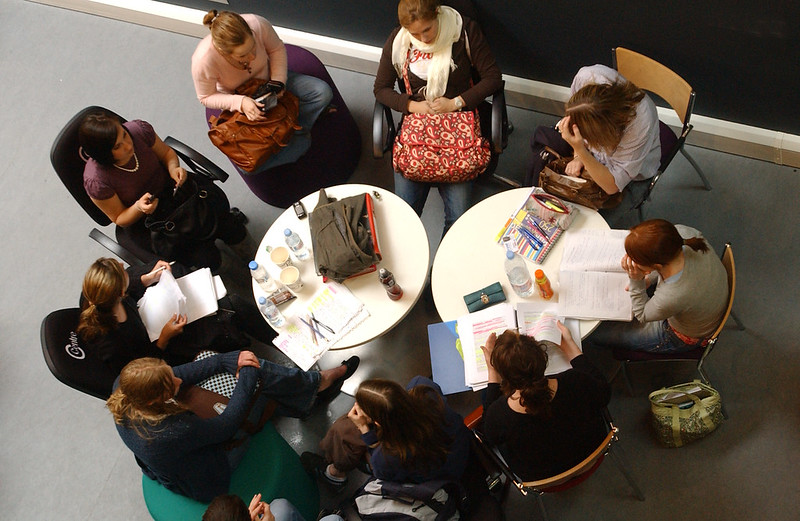94 per cent of state educated students at the University of Edinburgh experience prejudice at some point during their studies
A recent survey carried out by The Student asked state school students their experience at the university with many citing instances of accent discrimination, classism and feelings of imposter syndrome.
The survey distributed on social media had 89 responses, all from state educated students from Scotland, the rest of the UK and abroad.
Despite 93 per cent of students in the UK being state educated, at the University of Edinburgh privately educated students make up almost 40 per cent of the student population.
Academic challenges
Half of respondents said they faced academic or career based challenges or barriers related to their state educated background.
79 per cent of respondents reported experiencing ‘imposter syndrome’, or not feeling deserving of their place at the university.
Multiple responses related to feeling “behind students due to their ability to travel to supplement their studies“.
An Art BA student said: “Coming from a state school, I can count on one hand the number of art course trips I’ve been on (with none being outside of the UK)….it turns out others had some incredible trips to galleries, museums and places abroad.”
Ten per cent of responses specifically mention feeling academically disadvantaged due to not being taught Latin, as many state schools do not teach this.
“People who went to private schools have been taught things that I just never was … we didn’t do Latin or take part in other prestigious classes that now make me feel inferior.”, said one response
Another said, “I had to do more work outside of school to get to the same level as privately educated. Not knowing the Latin OR Greek ect. Etymology behind words seems like a big thing I’ve missed out on.”
A recurring theme in responses is that many state educated students felt disadvantaged in the support they received in applying to Universities, in comparison to many privately educated students having personalised support.
One response said “Many have been able to get internships/work experience through family connections that those from state schools don’t have”.
Multiple responses state that having to work alongside studies has caused academic challenges that many of their privately educated peers do not face.

Image via Google Forms.
Social challenges
Many responses highlighted social isolation due to many privately educated students already knowing each other.
87 per cent of respondents highlighted feeling unable to relate to people due to their class or state educated background.
One student commented “Being in pollock halls in first year was a culture shock, not having the already existing friendships from the private school network and being asked where my second home is.”
Some responses mention the discrepancy of experiences outside of academia.
“There have also been many instances where I have been socially excluded from conversations, For example, questions such as “which school did you go to?”, “where do you ski?”, “which Pollock building did you live in?.
“These questions often exclude state-school students and place barriers around the conversation that may prevent us from inputting.”
A more humorous response said “spoiler alert – no, I can’t ski and have never had the opportunity to.”
One student described an experience of their friends being “unbelievably shocked that I had never had a tasting menu.”
Another said “There is often a patronising congratulatory gaze directed towards those who “made it” to Edinburgh from a state school.”
Accent discrimination
Experiences of social exclusion appear to be more common for students with Scottish or rest of UK regional accents.
50 per cent of surveyed students reported facing accent based discrimination.
One student commented “ I am often discriminated against for my broad Glasgow accent, which means that I don’t even need to mention I went to a state school.”
Another said “My Scottish accent has been imitated and it makes me feel stupid and humiliated.”
Another mentioned that mocking of their accent, “makes me feel nervous to talk in tutorials.”
Similarly, one student said “private school people are taught how to speak more eloquently and this can feel very intimidating in tutorials.”
This year ‘The 93 per cent Club Edinburgh’, an organisation that campaigns for equal access for state educated students at universities, launched a campaign to introduce classism and accent discrimination training for staff.
The Student spoke to their President Grace Clark who said: “Accents don’t exist in a vacuum, there is everything including all the prejudice that comes along with having a certain accent.”
“Class isn’t a protected characteristic under the Equalities Act and so it isn’t included in the EDI training.”
“We don’t want to take away from any of the current training but we wan’t class to be alongside it and we want it to be explicit.”
“You can’t start to tackle an issue unless you name it, if you understand that there is elitism at this university, that’s the first step, you’re halfway there to fixing it.”
“The other half is just implementing it”.
“We think by targeting the system and the institution of the university by targeting staff we hope this will have a trickle down effect where we set up classrooms that are inclusive environments for people of all classes.”
Image: “Brunel University student study group” by Brunel University London is licensed under CC BY-NC-ND 2.0.

